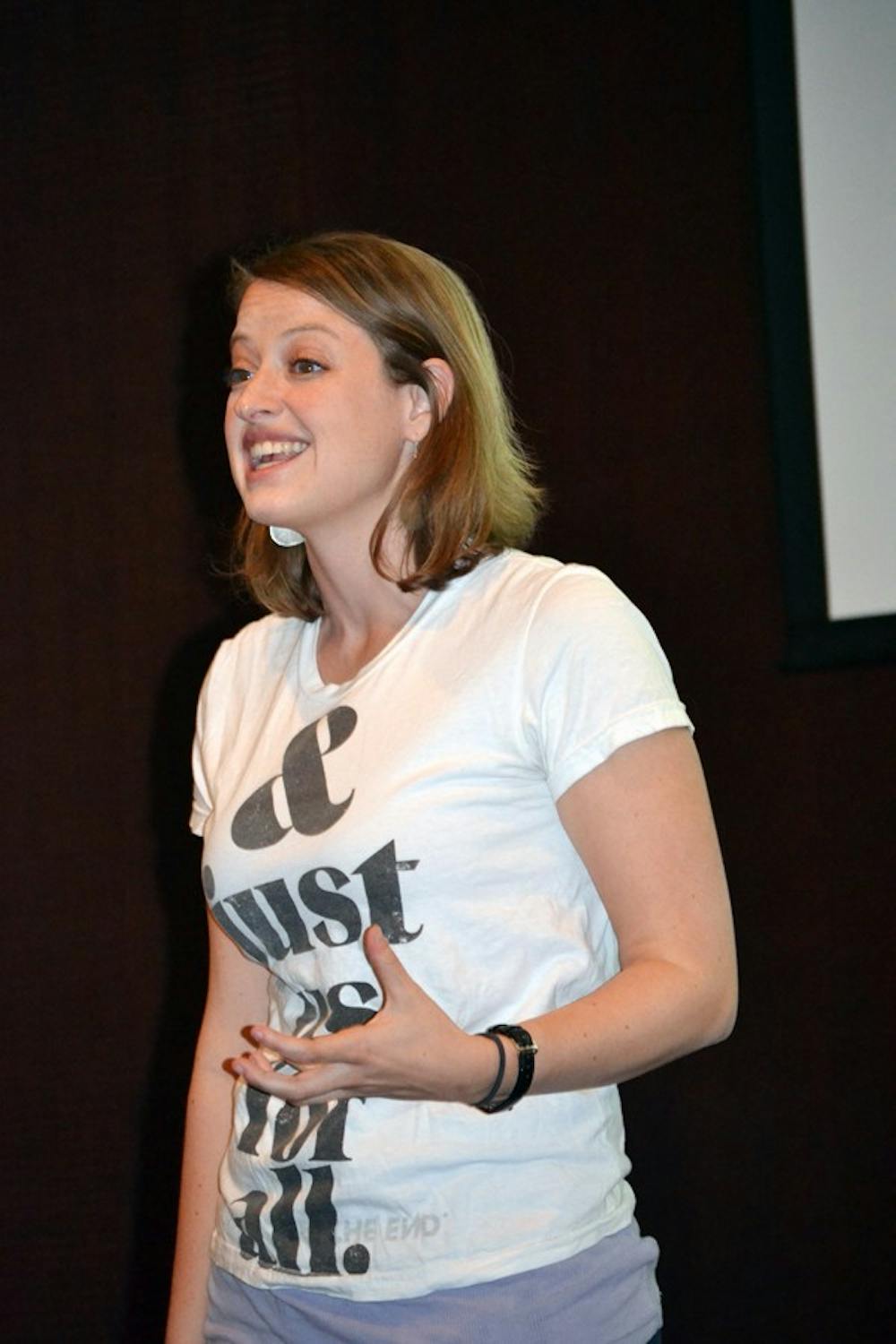 Meg Watkins, a representative for The Global Poverty Project, presents the 1.4 Billion Reasons multi-media presentation, which discusses problems, roadblocks and solutions for global poverty. Watkins is traveling with four other representatives across the nation to spread the message of this project and empower people to help in anyway they can. (Photo by Mackenzie McCreary)
Meg Watkins, a representative for The Global Poverty Project, presents the 1.4 Billion Reasons multi-media presentation, which discusses problems, roadblocks and solutions for global poverty. Watkins is traveling with four other representatives across the nation to spread the message of this project and empower people to help in anyway they can. (Photo by Mackenzie McCreary)A world without extreme poverty can exist, said Meg Watkins, the speaker at a Tempe campus event Tuesday called "1.4 Billion Reasons."
The Global Poverty Project, the nonprofit organization behind the multimedia presentation, sought to define poverty and what measures people can take to solve the issue.
Around the world, 1.4 billion people live in extreme poverty, which translates to living on $1.25 per day in the U.S., Watkins said.
“Hunger and famine aren’t caused by failure of food,” Watkins said. “The systems that are supposed to provide people with food failed them.”
Corruption, lack of natural resources and barriers to trade in some countries are the main causes of poverty.
It is possible to stop them through new laws, values and attitudes, Watkins said.
Other solutions include the empowerment of women, foreign aid and progress in health care, she said.
Poverty causes conflict, climate change and disease, Watkins said.
“We all live on the same planet,” Watkins said. “That gives us a moral obligation to see that everybody can live happily on it.”
ASU Forks for Change, a campus organization working to involve students in community issues, planned the event.
Forks for Change President Mohamed Camara said the goal of the event was to raise awareness of global issues.
“We contacted (the Global Poverty Project) as soon as we heard about them,” Camara said. “We wanted ASU students to know what they are doing.”
Danielle Goldschneider is one of four people who travel the country with the Global Poverty Project to introduce "1.4 Billion Reasons" to universities, high schools and community centers.
“We started the trip in January,” she said. “We show the presentation to educate and raise awareness, but also to give concrete solutions on how to end poverty.”
Goldschneider said her interest in the project began when she witnessed the despicable circumstances under which some people in developing countries lived.
“When you see morally abhorrent situations, it becomes your obligation to do something to change them,” she said.
Civil engineering junior Michael Walker said the presentation was really informative, and he plans to do more research about it.
“It puts things in a different perspective to realize there are many abysmal areas that need to be taken care of,” Walker said. “The fact that you can do something about it gets to you.”
The Global Poverty Project invites people to undertake the Live Below the Line challenge.
For five days, participants have to survive on $1.50 a day.
“This is a great way to gain insight on the choices these people have to make every day,” Watkins said. “We have the ability to reach people all over the world and change their lives.”
Reach the reporter at dpbaltaz@asu.edu
Follow us on Twitter or like us on Facebook. Click here to subscribe to the daily State Press email newsletter




